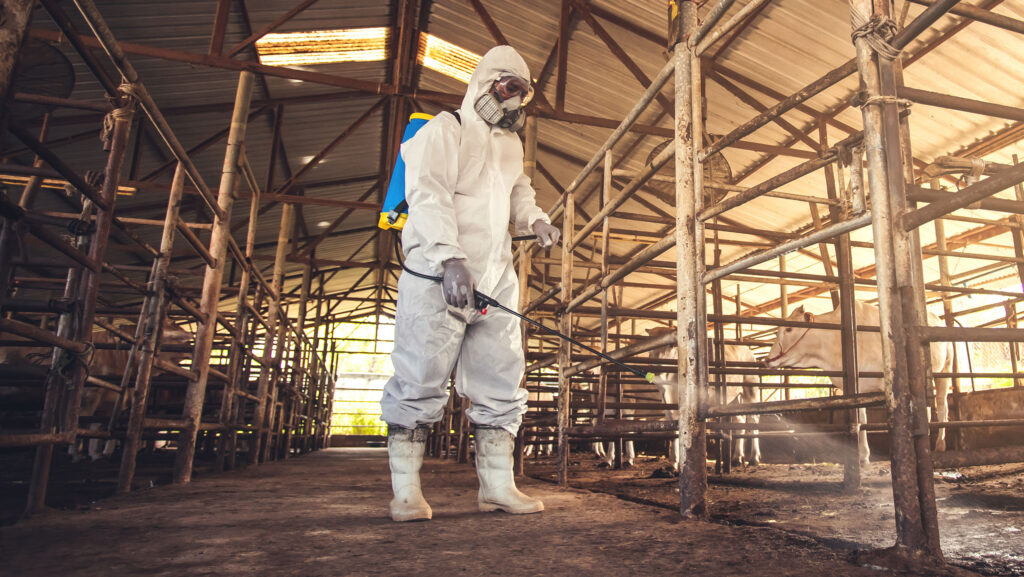UK found ‘unprepared’ for severe animal disease outbreak
 © Adobe Stock
© Adobe Stock The UK would struggle with a severe animal disease outbreak and is insufficiently prepared to respond, a report from the National Audit Office (NAO) has found.
While outbreaks of animal diseases have occurred every year in the past six years, and Defra and the Animal and Plant Health Agency (Apha) have worked hard to manage them, they would struggle to cope with a more severe outbreak of animal disease.
The report also highlights that Defra has not determined a way to reduce this risk and that, while it has generic contingency plans for outbreaks, there are significant gaps.
See also: Concerns raised over Defra’s response to FMD threat
Additionally, the report highlights that Defra and Apha are not effectively testing how adequate their plans are.
“A long-term strategy and action plan are urgently needed, to protect national economic resilience as well as food security, human health and rural communities,” said Gareth Davies, head of the NAO.
Cost of outbreaks
Past animal disease outbreaks, the report highlights, have had significant economic impacts.
The foot-and-mouth disease outbreak of 2001 cost the public and private sectors an estimated £13.8bn (in 2023-24 prices).
Recent outbreaks of highly pathogenic bird flu have resulted in 7.2m birds being culled between November 2020 and mid-March 2025.
Challenges
Although Defra and Apha have managed recent medium-severity outbreaks, there are challenges which mean they’d be insufficiently prepared for a more severe outbreak, says the report.
These include:
- Significant gaps in government contingency plans
- Outdated and inefficient operational processes within Apha
- Out-of-date infrastructure, particularly relating to the government’s animal science facility at Weybridge, which won’t be completed for another decade
- No comprehensive livestock movement tracing system, despite attempts to establish one beginning in 2013
- Capacity and skills shortages – Apha’s vet vacancy rate in April 2025 was 20%.
Border checks
Despite introducing initiatives to strengthen resilience, such as the Animal Health and Welfare Pathway, progress is being undermined by global issues, with tight supplies of animal vaccines and significant threats to biosecurity at the border.
Defra’s best estimate for the proportion of live animal imports from the EU and the rest of the world currently undergoing physical checks is 5%, against a government target of 100% at border control posts by the end of 2024.
“NAO’s report must act as a wake-up call to both the government and the wider public as we all have a role in ensuring that our country is safe from animal disease,” said Tony Goodger, head of communication at the Association of Independent Meat Suppliers.
He added the onus was now on the government to ensure people travelling abroad were aware of the ban on personal imports of meat and dairy products.
Tracing systems
The report further highlights the lack of a comprehensive livestock movement tracing system, which it said was fragmented, with different platforms for different species and in each of the devolved nations in the UK.
British Meat Processors Association chief executive Nick Allen said: “Our failure to push on with a comprehensive livestock tracing system exposes us.
“Devolved powers get in the way of rational decisions being made and add inefficiency and cost to the system as we are seeing with bluetongue at present.”
The systems and processes, he told Farmers Weekly, are long overdue a complete revamp.
‘Unwavering’
However, Defra insists that its commitment to maintaining national biosecurity is “unwavering”.
“We will do whatever it takes to protect our farmers and economy,” said biosecurity minister Baroness Hayman.
““We took immediate action to ban personal imports of meat and dairy from Europe after a wave of foot and mouth cases on the continent and, after years of underinvestment, we are investing £200m into a new National Biosecurity Centre (at Weybridge),” she said.
A Defra statement also pointed to the new sanitary and phytosanitary agreement with the EU, moves to make electronic cattle ID mandatory from 2027, and the recent decision by the World Organisation for Animal Health to grant the UK “negligible” BSE risk status.
